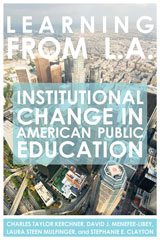A Real Cheesehead: Public Sector Collective Bargaining Under Attack in Wisconsin
Posted on | February 13, 2011 | Comments Off on A Real Cheesehead: Public Sector Collective Bargaining Under Attack in Wisconsin
The extent of the attack on public sector collective bargaining has taken me by surprise. I had expected that Republican victories in November would lead to a hardening of attitudes, but the extent and spread has been breathtaking. There are reports of an initiative to repeal collective bargaining in California, but that may well amount to nothing. Anyone can take out initiative papers; it takes $1-million plus to qualify one for the ballot and a lot more for passage. The pointy end of the attack comes in Wisconsin where Republican Gov. Scott Walker, has proposed drastic limitations on collective bargaining as well as rollbacks of wages and pensions.
My reading of the proposed legislation, which is expected to pass a Republican controlled legislature, is that it will limit collective bargaining to only base wages, and thus items such as health care, overtime, vacations, sick days, and other compensation would not be bargainable. Police and firefighters are not covered by the pending legislation. Good thing. The governor may well need them to keep order. In an interview, he said that using the National Guard was not out of the question.
Clearly, the legislation is aimed at weakening the unions, not just balancing the state budget. It would eliminate payroll deduction of union dues, a provision that is the financial lifeline of unions. It would also allow a member to withhold dues. It would require employees to hold a secret ballot election every year on whether they should remain unionized, and it would require labor contracts to be renegotiated every year. The language of the proposed statute also allows employers to terminate any employee who engages in a labor protest, not a strike, any labor protest.
Gov. Walker has also apparently simply cancelled existing contracts. I am not sure of the legal authority involved, but a letter was sent to union leaders by the state labor commissioner effectively ending contracts effective March 13. (You can follow the Wisconsin situation via The Wheeler Report.)
Also, there has been legislation introduced in Tennessee to totally eliminate collective bargaining for teachers and in Idaho and Indiana to restrict the scope of bargaining. Similar threats are being considered in Ohio and New Jersey.
All of this runs in the wrong direction.
In United Mind Workers we proposed to tweak collective bargaining by making it responsive to the education quality needs of schools and the interests that teachers have in determining the dimensions of their own work. Thus, we generally wanted to expand rather than contract the topics under discussion.
Mark Simon, who was the executive director of the Montgomery County, MD union responded to the Education Week article. I agree with his position:
“Shortsighted” is an understatement. This is the opposite of what legislatures should be doing. Rather than ensuring that teachers’ unions focus only on the narrow issues of pay and hours, policy makers should be trying to get teachers and their unions to focus on elevating the quality of teaching and improving student learning, This development in these three states amounts to narrow Republican politics, pursued at the expense of what’s best for kids. Finally teachers’ unions have started to engage in collaborative efforts to improve teacher evaluation, to struggle for better measures of student learning, to get serious about the kind of supports that new teachers receive, and creative ways to ensure that teachers voices are heard at the school and district-wide. Progressive contracts in places like Baltimore, Boston, Memphis, Chatanooga, LA, Portland(ME), and elsewhere need to be encouraged. These moves toward professional unionism and the creation of professional growth systems to improve the quality of teaching are fragile and need to be encouraged. School districts need their unions to be focused on exactly these issues. Elected officials who aim to push the unions back into their wages and hours box as if they were dealing with industiral workers, or worse, political enemies, should be ashamed.
But the politicians aren’t the only ones who are shortsighted. Many of us have been urging the NEA and the AFT to move rapidly beyond their industrial-assumption origins, but they have been glacially slow in doing so. In California, at least, that chance still remains.
A Question for Some Law Students
I have been asked by some bright law students at UCLA to talk with them about labor law and school reforms. This is a huge topic, which can only be introduced here, and I certainly cannot follow current events. But here is a question:
Should teachers be organized as a profession? If the answer is “yes,” then: What legal establishments should be used for their organization? If the answer is “no,” then: What kind of occupation would you consider teaching to be, and what, if any, rights would you give teachers?
Responses from law students and others encouraged.




